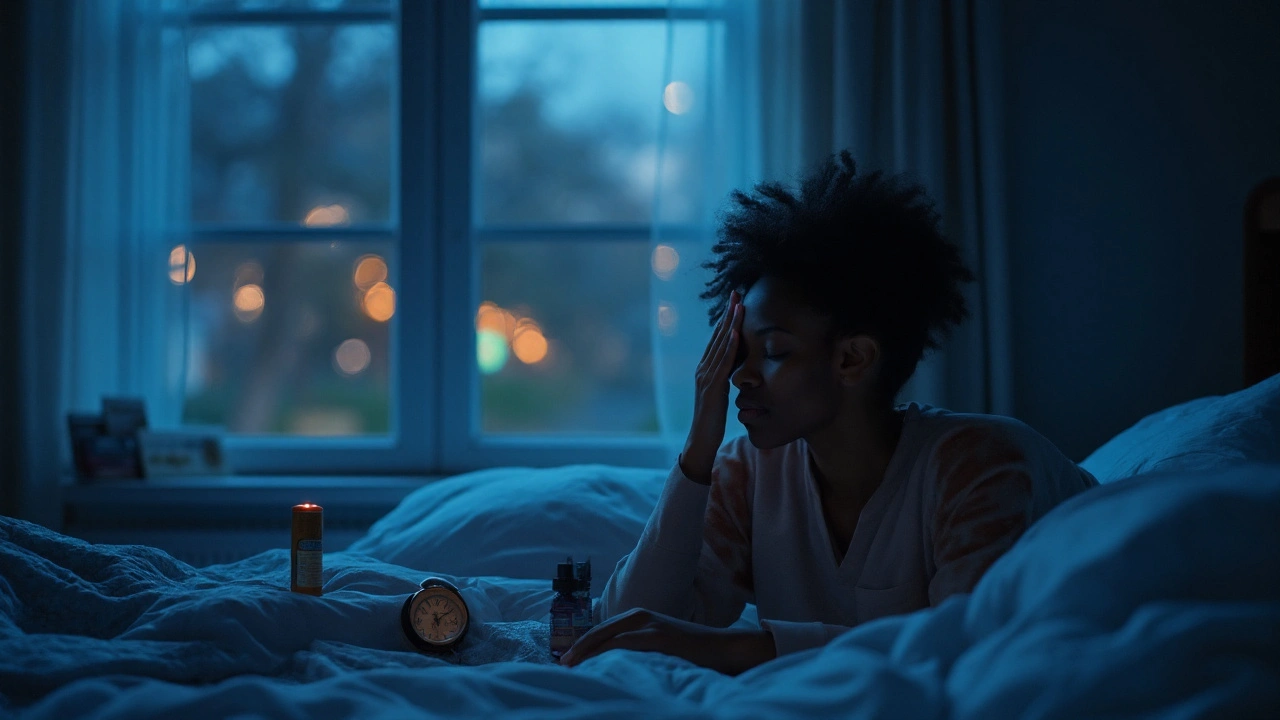Sleep Quality: Simple Steps to Rest Better and Avoid Medication Pitfalls
Ever wake up feeling groggy even after a full night? Poor sleep can mess with your mood, energy, and even how your body handles medicines. The good news is you can improve your sleep without big changes. Below are easy habits and a heads‑up on common meds that might be ruining your nights.
Everyday Habits That Really Help
First, set a regular bedtime. Your body loves a routine, so try to go to bed and get up at the same time, even on weekends. Turn off bright screens at least 30 minutes before bed—phones, tablets, and TVs flood your brain with blue light that tells it to stay awake.
Keep the bedroom cool and dark. A temperature around 65 °F (18 °C) and blackout curtains create a sleep‑friendly environment. If outside noise bothers you, a fan or white‑noise app can block it out.
Limit caffeine after lunch. Even a small cup of coffee in the afternoon can keep you up later. The same goes for nicotine and heavy meals close to bedtime—both can trigger stomach discomfort that interrupts sleep.
Try a short wind‑down routine: read a simple book, stretch, or practice deep breathing. One popular method is the 4‑7‑8 breath: inhale for 4 seconds, hold for 7, exhale for 8. It calms the nervous system and makes it easier to drift off.
Watch Out: Meds That Can Mess With Your Sleep
Some prescription drugs have side effects that affect sleep. Promethazine, often used for nausea or allergies, can cause drowsiness during the day and make it hard to stay asleep at night. If you notice you’re nodding off at work, talk to your doctor about timing the dose or switching to a different drug.
Medexil (the name appears in a few online listings) is sometimes confused with other sleep‑related pills. If you’re not sure what you have, verify the exact medication with your pharmacist to avoid unintended sedation.
Antibiotics like Noroxin (norfloxacin) can cause muscle aches and a feeling of restlessness that keeps you awake. Staying hydrated and taking the drug with food (if approved) can reduce these effects.
Always read the “warnings” section on your prescription label. If a drug lists insomnia, nighttime anxiety, or vivid dreams, plan to take it earlier in the day or ask your provider for an alternative.
When you start a new medication, keep a sleep diary for a week. Note the time you go to bed, how many times you wake up, and any side effects you feel. This record helps your doctor spot patterns and adjust treatment quickly.
Remember, improving sleep is a mix of habits and awareness of what you take. Small changes like dimming lights, sticking to a schedule, and checking med side effects can add up to better rest and a clearer mind.
Ready to give these tips a try? Start with one habit—maybe turning off screens at night—and see how you feel after a few days. Your body will thank you, and you’ll notice a boost in energy, mood, and overall health.

Sildenafil and Sleep: How It Impacts Your Bedtime Routine
Learn how sildenafil affects sleep, what side effects to watch for, and practical tips to keep your bedtime routine smooth.

Bepotastine and Sleep: Does It Help or Hurt Rest for Allergy Sufferers?
Struggling to sleep with allergies? Learn how Bepotastine affects drowsiness, timing, and symptom control-plus tips, comparisons, and what to do if sleep still stinks.




